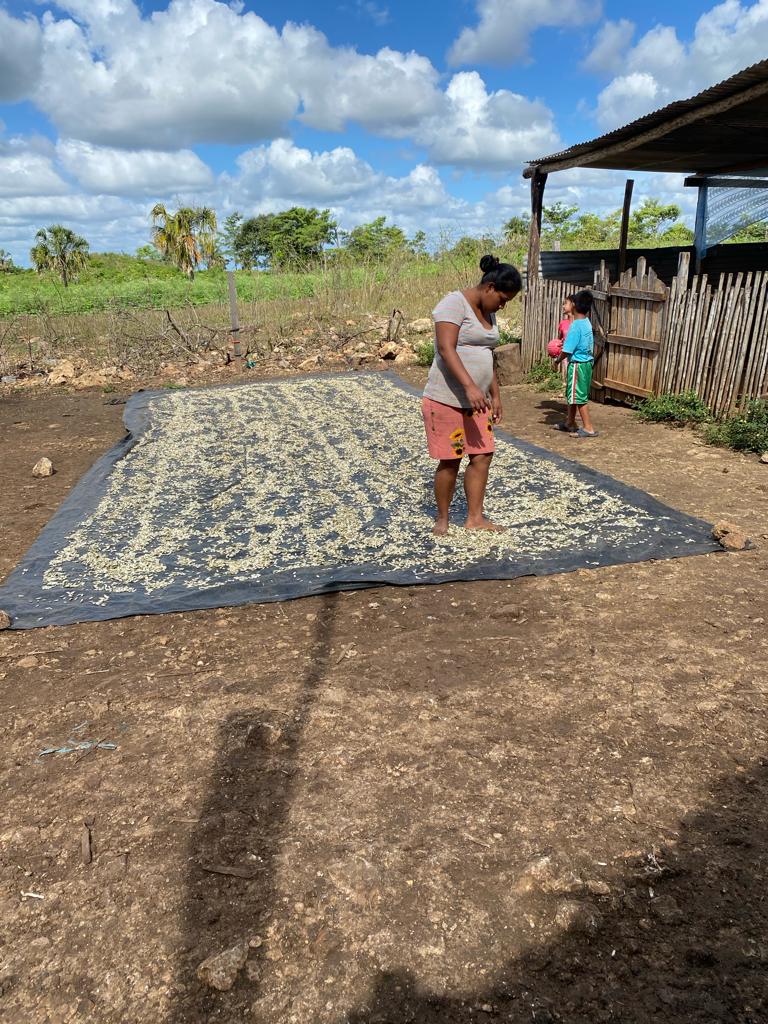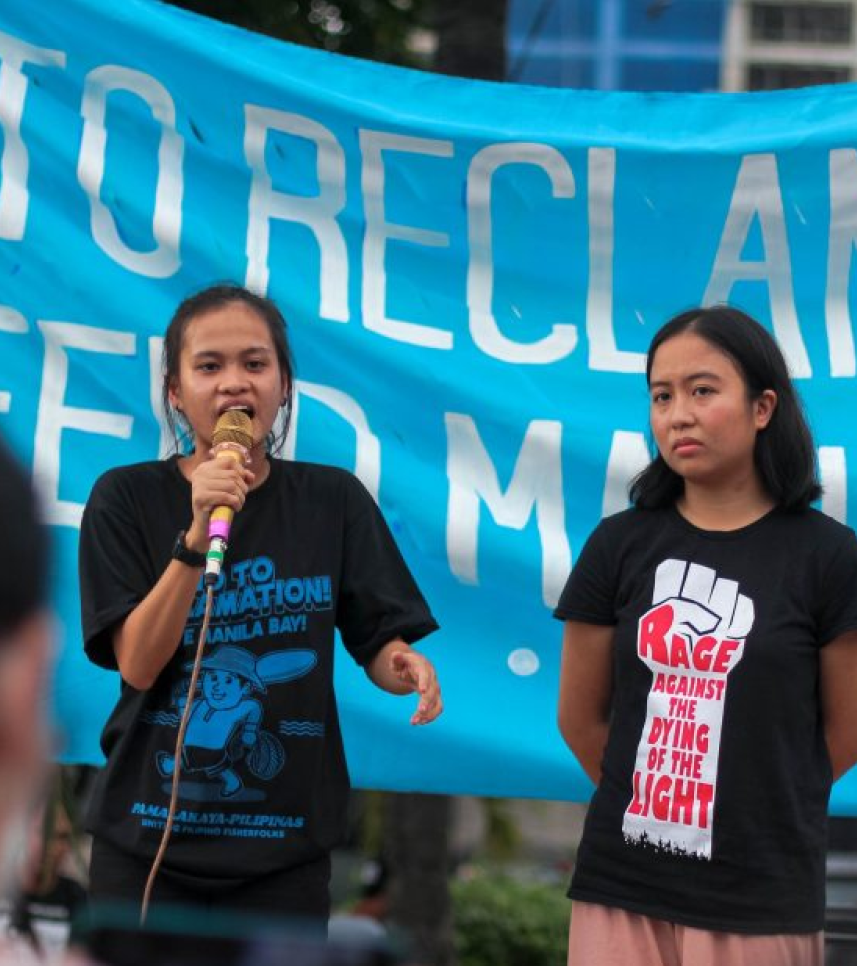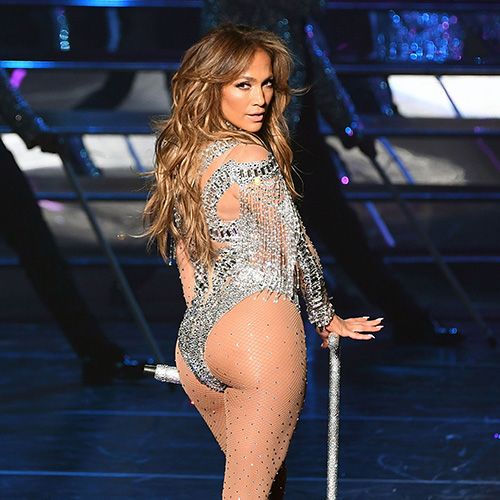As climate impacts intensify, states are choosing profit over protection, leaving marginalised communities, especially women, to carry the burden and build resistance.
by Chus Álvarez - Women in Migration Network (WIMN)
“Despite the different manifestations of the challenges women face, the clear message is that we need structural changes to tackle all these systemic issues including the loss and damage caused by the climate crisis and the structural violence against women and migrants.”
Ka Mei Lau, Programme Officer at Asia Pacific Forum on Women, Law and Development (APWLD)
Odilia is a Mayan woman born in Guatemala. Between 1984 and 1985, her community was one of the many Mayan communities forced to move by the Guatemalan government via violent eviction. They settled in El Petén Department, 3 km from the border with Mexico. Later in 1999, they were again violently displaced – this time all the way to Mexico.
Looking for a neat category that fits Odilia and her Mayan community is quite a challenge. Are they “refugees” or “migrants”? Are they “displaced”? These kinds of classifications reproduce hierarchies: some people are seen as deserving of protection, others as voluntary movers who need to be scrutinized. We are still trying to classify people’s suffering, while not addressing it and eradicating the root causes.
Odilia and her community are Mayan people fiercely resisting multiple systems of oppression. That category fits them neatly. They are surviving in an isolated area near the border between Mexico and Guatemala: they cross from one side to the other depending on which government is harassing them; they are living in a campsite, in unsanitary conditions, without basic services such as medical care, drinking water or food; and exposed to diseases, even as far as to produce miscarriages.

And how is that related to the debates on climate change and migration? Well, these communities were the guardians of the territory. However, they were forcibly displaced, accused of “land usurping” of protected areas while the government handed these same protected areas to an Anglo-French company for oil exploitation. With an agenda allegedly focused on protecting the environment, the government not only opened the land for exploitation, they also ignored and violated the rights of the people living there and protecting it. The government first chose to criminalise and then displace Odilia and her community.
Other communities around the globe are similarly disposed of their livelihoods and rights by the same governments that should be protecting them over the profit of national and transnational companies. They are part of increasing numbers of displaced peoples, further marginalized as adverse actions by governments either directly or through multinational corporations exacerbate the climate crisis, jeopardizing their lives and often pushing them to migrate for survival.
Climate change magnifies existing inequities and systems of exclusion with devastating effects on the most marginalised communities.
“Climate change magnifies existing inequities and systems of exclusion with devastating effects on the most marginalised communities.”
Take, for example, the Philippines. The archipelago is quite vulnerable to the impacts of climate change. Yet, the government chose to invest in land reclamation projects —187 projects covering nearly 30,000 hectares of the country’s waters as of January 2025. Land reclamation greatly disturbs the marine ecosystems and accelerates coastal erosion, leaving communities exposed to environmental hazards.
Fisherfolk have seen their traditional livelihoods disrupted, leading to income loss and, in some cases, the displacement of entire coastal communities. They are not just food producers; they are stewards of the seas and play a vital role in protecting the environment. Yet again, the government chose to criminalise their work to protect the environment while depriving them from their livelihoods.
In places like the Volta Delta in Ghana, coastal erosion has worsened the flooding situation, killing people and destroying infrastructures. In Nigeria, coastal communities are affected by the rising sea level: in Ondo State, part of the Ayetoro community land has been completely submerged by the sea. In Sierra Leone floods are causing loss of livelihoods and agricultural land. In Kenya, the 2024 flooding in the Mathare community swept away the livelihood of thousands of families. Women are among the most affected because they play key roles in agriculture and caregiving. They also become vulnerable to gender-based violence and human trafficking. In all cases, people are forcibly displaced as their land, air, water, housing, and livelihoods are impacted.

The issue of climate and displacement is not one of direct causality, it is complex. Cases like these show clearly how it is intertwined with armed conflict, corporate exploitation of natural resources, corruption, “green-washing” and other factors that undermine people’s rights and survival. It has a greater impact on populations on the frontlines already enduring inequity and historically marginalized, and requires feminist and anti-racist strategies.
Women play key roles in the communities, they take on extra burdens like low-paid second and third jobs to secure families income and to avoid having to leave their homes. They sustain life in the midst of scarcity with self-organized “savings circles” and they organize to get services and to demand accountability from their government. Women maintain hope. The hope of returning to their land —ideally a liveable land—, the hope of recovering their livelihood, the hope of taking their children back to school. Women are persistently resisting despite everything and they have become pivotal actors in climate justice. Yet, they remain excluded from policy tables and actual monetary resources.

Protecting the environment and hence, the lives and livelihoods of many is a political choice. In a world upside down, too many governments ally with companies to look away and make the rich even richer while chasing, harassing and killing those who protect the environment.
Opening these conversations with the communities directly affected allows us to think about climate related migration not exclusively from disasters as triggering factors and populations lightly classify as ‘victims.’ It also prompts us to challenge the capitalism and neo-colonialism that deepen social injustice and increase the risk of forced displacement of entire communities immersed in territories highly exposed to climate change. Those responsible must be challenged and states must be held accountable, particularly the global North, that industrialized at the expense of the planet and the majority of its peoples.
The invitation is to treat the impacts of the climate crisis as opportunities for the affected communities to contribute real solutions, rather than openings to drive them from the territories they inhabit. In all the conversations we had at Women in Migration Network (WIMN) with frontliners we have seen how women organize to navigate the changing realities of their lives. They have created new paradigms and built a discourse of resistance based on the impacts they experience and its analysis.
“Women are persistently resisting despite everything and they have become pivotal actors in climate justice. Yet, they remain excluded from policy tables and actual monetary resources.”
Governments need to recognize and uphold women´s roles in the protection of their communities, livelihoods, and the environment. They need to protect their rights against the gains and profit of extractivist and neo-colonial initiatives that are forcing them to move and making return impossible. The right to stay is as important as the right to move and return. Governments need to ensure livelihoods and dignified living conditions to stay, a safe path for migration and real options for return.
Climate change is not a natural disaster; it´s the by-product of political and economic choices and choices can be budged. Governments must choose to put affected communities and nature at the centre while affirming human rights for all.
Chus Álvarez is Program Associate at Women in Migration Network – Membership and Leadership Development
Learn more about Intersectoral Dialogues on Climate Change, Gender and Migration at Climate Change and Gender and Migration at Women in Migration Network website.
Women in Migration Network (WIMN) is an international network focused on the rights of women in migration. WIMN takes an intersectional, feminist approach to promote women’s human rights in migration and development policy, and to promote migrant rights in feminist advocacy. Find more about their work here.



